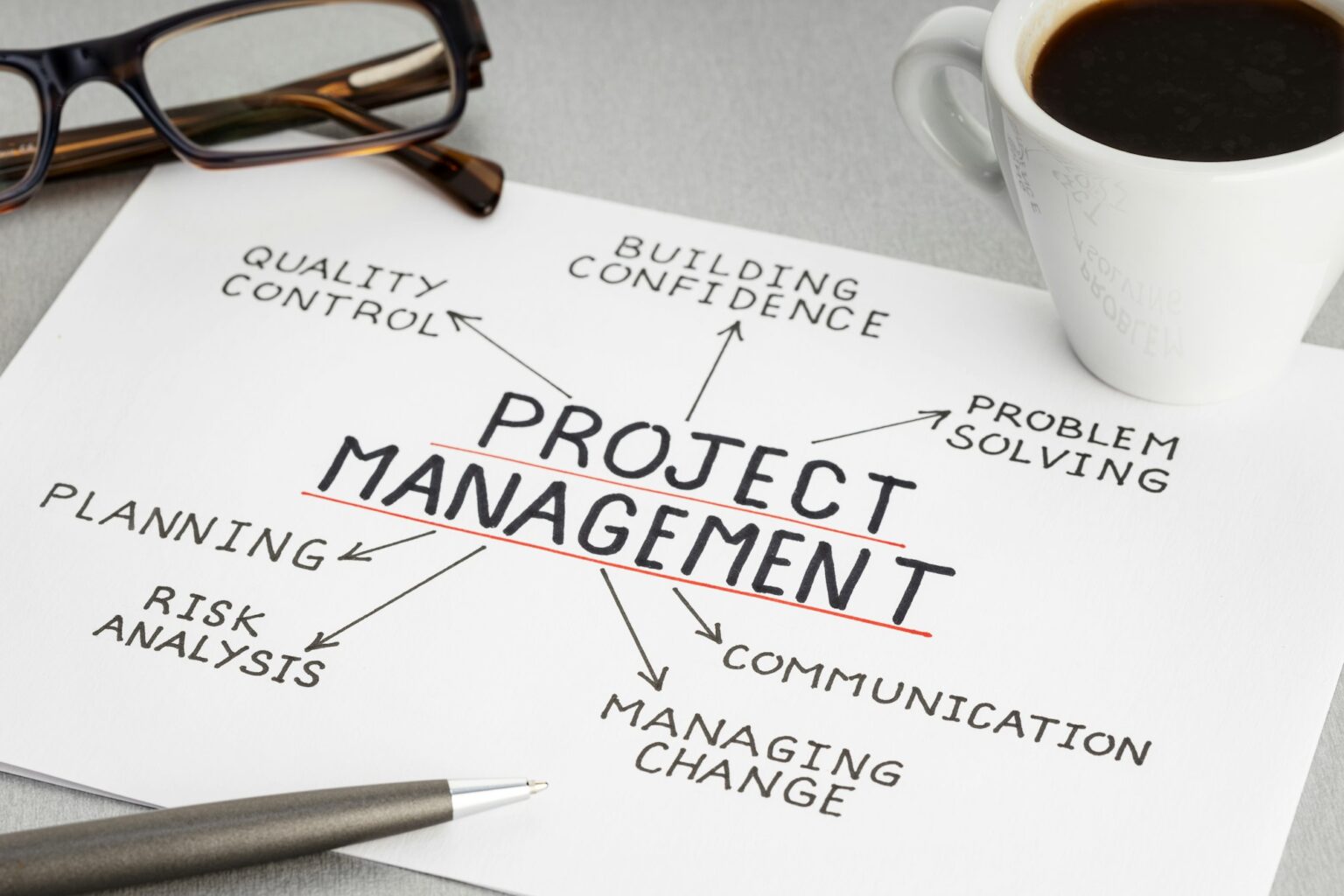
1. What are main Risks in Project Management?
One of the main risks in project management is scope creep, where the project’s goals keep expanding beyond the initial plan. This can lead to delays, increased costs, and a loss of focus on the project’s original objectives. Another major risk is inadequate resource allocation, where not enough time, money, or manpower is allocated to complete the project successfully. This can result in missed deadlines, poor quality work, and unhappy stakeholders.
Moreover, poor communication among team members and stakeholders can also pose a significant risk in project management. This can lead to misunderstandings, conflicts, and delays in decision-making, ultimately impacting the project’s progress. Additionally, external factors such as changes in regulations, market conditions, or technology can introduce unforeseen risks that may derail the project if not properly managed.
2. What is Risk Assessment in Project Management?
Risk assessment in project management is the process of identifying potential risks that could impact a project’s success. It involves evaluating the likelihood of these risks occurring and their potential impact on the project. By conducting a risk assessment, project managers can develop strategies to mitigate or avoid these risks.
During risk assessment, project managers analyze various factors such as project scope, timeline, budget, and resources. They use techniques like brainstorming, SWOT analysis, and risk matrices to identify and prioritize risks. By proactively addressing potential risks, project managers can minimize disruptions and ensure the successful completion of the project.
3. Risk management plan for pharmaceutical Project
The risk management plan for the pharmaceutical project involves identifying potential risks early on. By conducting a thorough risk assessment, the team can anticipate challenges and develop strategies to mitigate them. Additionally, regular monitoring and evaluation of risks throughout the project will ensure that any new risks are identified and addressed promptly.
In the event that a risk does materialize, the team will have contingency plans in place to minimize its impact on the project timeline and budget. Communication and collaboration among team members will be key in implementing these risk management strategies effectively. By staying proactive and adaptable, the team can navigate potential obstacles and ensure the successful completion of the pharmaceutical project.
4. Key topics related Project Management Risks
Project management risks are uncertainties that can impact the success of a project. One key topic related to project management risks is identifying potential risks early on in the project planning phase. By conducting a thorough risk assessment, project managers can anticipate and mitigate potential issues before they arise. This proactive approach can help prevent costly delays and setbacks.
Another important topic in project management risks is developing a risk management plan. This plan outlines how risks will be identified, assessed, and addressed throughout the project lifecycle. By having a clear plan in place, project teams can effectively manage and minimize the impact of potential risks. Regular monitoring and updates to the risk management plan are essential to ensure that the project stays on track and meets its objectives.
4.1. Budgeting
Budgeting in project management is crucial for the success of any project. Without proper planning and allocation of funds, a project may face various financial risks. For example, unexpected cost overruns can occur due to changes in regulations or delays in the production process.
Furthermore, fluctuations in currency exchange rates can also impact the budget of a pharmaceutical project. It is important to regularly monitor and update the budget to account for any potential financial risks that may arise. By using risk management techniques and contingency planning, project managers can mitigate these risks and ensure the successful completion of the project within budget constraints.
4.2. Regulatory compliance
Regulatory compliance is crucial in project management as it ensures that all activities adhere to legal requirements. Failure to comply with regulations can result in severe consequences such as fines or project shutdowns. Furthermore, unexpected changes in regulations can pose a risk to project timelines and deliverables. For example, if a new law is passed midway through a project, it may require significant changes to be made, causing delays and potentially impacting the project’s success.
To mitigate the risk of unexpected regulatory changes, project managers must stay informed and regularly monitor any updates in laws or regulations that may affect their projects. They should also establish clear communication channels with regulatory agencies to quickly address any compliance issues that may arise. By proactively identifying and addressing regulatory risks, project managers can better protect their timelines and deliverables from potential disruptions.
4.3. Supply chain management
Supply chain management is crucial in project management to ensure a smooth flow of materials. Firstly, one risk is the possibility of delays in the delivery of raw materials. This can disrupt the production schedule and lead to costly setbacks. Additionally, fluctuations in demand can pose a risk as well. It is important to have a clear understanding of market trends to avoid overstocking or shortages.
Moreover, quality control is another risk in the supply chain for pharmaceutical production. Ensuring that raw materials meet strict standards is vital to the safety and efficacy of the final product. Furthermore, geopolitical factors can also impact the supply chain, such as trade restrictions or political instability in supplier countries. It is essential to have contingency plans in place to mitigate these risks and maintain a steady supply of raw materials.
4.4. Technology integration
Implementing new technologies in pharmaceutical production processes can bring about several challenges. Firstly, there may be resistance from employees who are not familiar with the new systems. This can lead to delays in project timelines and increased training costs. Additionally, the integration of new technologies may require changes to existing processes and workflows, which can disrupt production and create bottlenecks.
Furthermore, there may be concerns about the reliability and security of the new technologies. Issues such as data breaches or system failures could have serious consequences for pharmaceutical companies, including regulatory fines and damage to their reputation. It is important for project managers to carefully assess the risks associated with technology integration and develop contingency plans to mitigate these challenges.
4.5. Stakeholder alignment
Stakeholder alignment is crucial in project management to ensure everyone is on the same page. When stakeholders have conflicting priorities, it can lead to misunderstandings and delays in decision-making. For example, if the project team is focused on cost control while the client is more concerned with quality, there may be disagreements on how resources should be allocated.
This lack of alignment can create risks for project outcomes by causing scope creep, budget overruns, and missed deadlines. Additionally, conflicting priorities can hinder effective communication and collaboration among team members, leading to confusion and inefficiency. To mitigate these risks, project managers must actively engage with stakeholders to understand their priorities and work towards finding common ground to keep the project on track.
5. Main challenges faced by project managers
Project managers in the pharmaceutical industry must navigate through strict regulations, manage intricate supply chains, and adapt to market changes quickly. Additionally, they need to ensure seamless communication between different teams to achieve project goals.
Moreover, project managers must stay updated on regulatory changes, proactively address supply chain issues, and collaborate effectively with diverse teams. They must also be able to anticipate market trends and make strategic decisions to keep projects on track and within budget.
Sign up for our Premium Subscription Plan now!
6. How do project managers ensure compliance with regulatory requirements?
Project managers play a crucial role in ensuring that pharmaceutical projects adhere to regulatory requirements. They oversee the implementation of guidelines such as Good Laboratory Practice and Good Manufacturing Practice. Additionally, they ensure compliance with regulations set by authorities like the FDA and EMA.
By following these guidelines, project managers ensure that pharmaceutical projects meet regulatory standards. They work closely with regulatory authorities to stay updated on any changes in requirements. Moreover, they monitor project activities to ensure that all processes are in line with regulatory guidelines.
7. How do project managers handle risks and uncertainties in pharmaceutical projects?
Project managers in pharmaceutical projects handle risks and uncertainties by identifying potential issues early on. They conduct thorough risk assessments to evaluate the likelihood and impact of various risks. By doing so, they can prioritize risks and develop mitigation strategies to minimize their impact.
Furthermore, project managers regularly communicate with stakeholders to keep them informed about potential risks and uncertainties. They also monitor project progress closely and adjust plans as needed to address any emerging risks. By staying proactive and flexible, project managers can effectively manage risks and uncertainties in pharmaceutical projects.
Would you like to know about?
Conclusion
In conclusion, project management risks from planning to implementation are crucial to the success of pharmaceutical projects. Risk assessment plays a key role in identifying potential challenges and devising strategies to mitigate them. Risk-taking is also essential in project management to navigate uncertainties and achieve project goals.
The risk management plan for pharmaceutical projects involves identifying, assessing, prioritizing, and monitoring risks throughout the project lifecycle. By developing a comprehensive risk management plan, project managers can proactively address potential issues and ensure project success. Key topics related to project management risks in the pharmaceutical industry include budgeting, regulatory compliance, supply chain management, stakeholder alignment, technology integration, and talent management. By effectively managing these risks, project managers can enhance project outcomes and drive innovation in the pharmaceutical sector.

Ershad Moradi
Ershad Moradi, a Content Marketing Specialist at Zamann Pharma Support, brings 6 years of experience in the pharmaceutical industry. Specializing in pharmaceutical and medical technologies, Ershad is currently focused on expanding his knowledge in marketing and improving communication in the field. Outside of work, Ershad enjoys reading and attending industry related networks to stay up-to-date on the latest advancements. With a passion for continuous learning and growth, Ershad is always looking for new opportunities to enhance his skills and contribute to pharmaceutical industry. Connect with Ershad on Facebook for more information.

Master GxP Validation in 2026: Meaning, Key Steps, and Validated State Control
Auditors want evidence you can trace, not opinions you can explain. GxP validation links intended use, requirements, risk, and test results into one story. When you control changes and review performance, you keep the system inspection-ready every day on time.

Master GMP Compliance in 2026: Meaning, Core Elements, and How to Implement
GMP compliance keeps medicines safe, consistent, and traceable across every batch. This guide explains core GMP elements, practical rollout steps, and common pitfalls. It also shows how to strengthen training, documentation, data integrity, and audit readiness.

History of Pharmacovigilance: From the Thalidomide Crisis (1961–2026) to GMP Oversight
Thalidomide in 1961 changed drug safety forever. Since then, pharmacovigilance has grown from crisis response to proactive risk management. Today, teams track signals, tighten reporting rules, and connect safety data to quality systems. As a result, PV now links directly to GMP oversight, audits, and data integrity.



